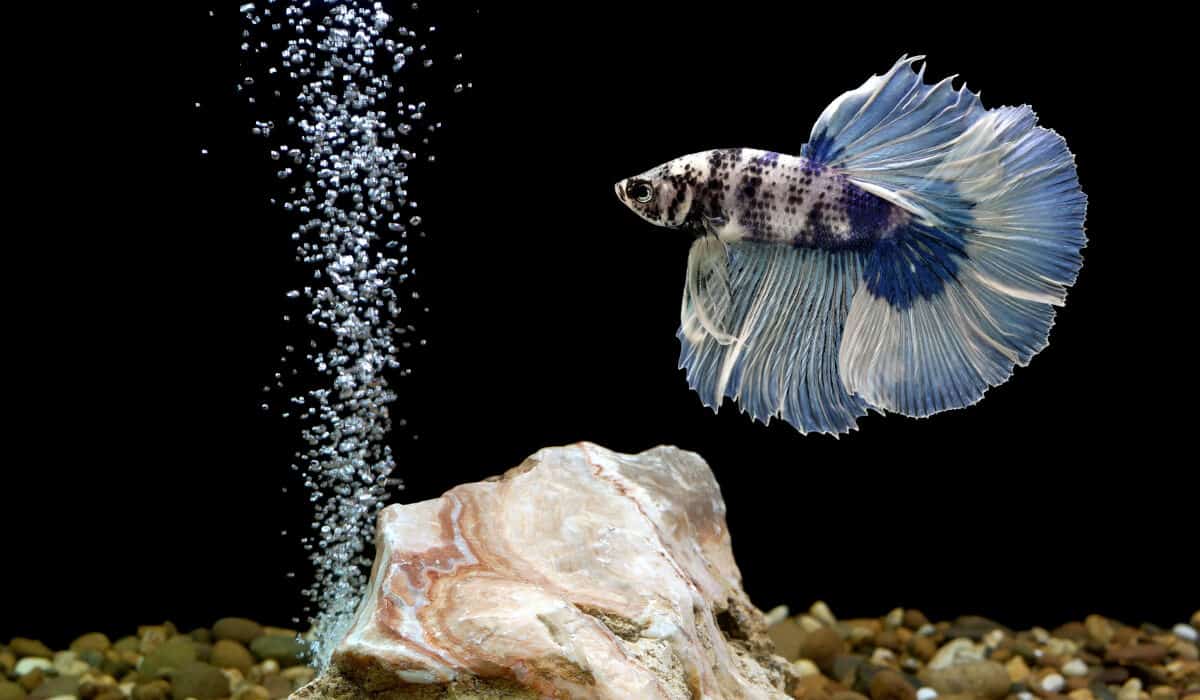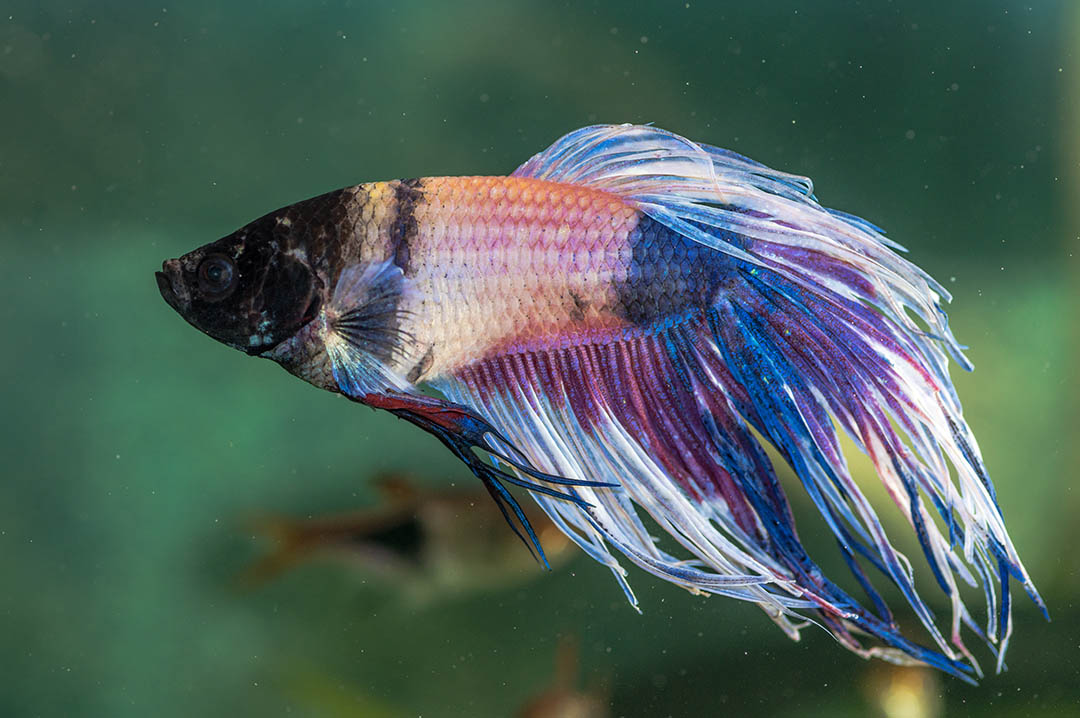Why Is My Betta Fish Hiding? Vet-Approved Causes & Solutions
Updated on
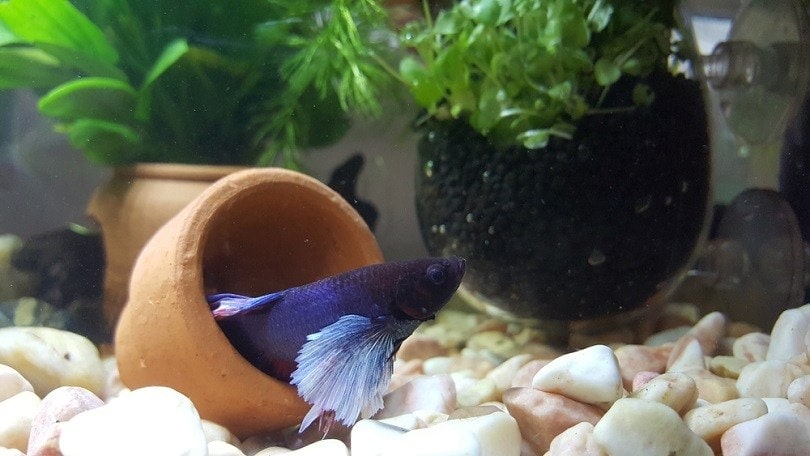
Betta fish are generally active fish. They can be seen swimming around the top or mid-level of the tank and exploring their environment. It can be alarming to one day peer into the tank only to find your once energetic betta fish, hiding away. This is unusual behavior that can be caused by a variety of different reasons. Fortunately, most reasons for bettas to hide are caused by simple issues that can quickly be resolved. Your betta fish may take to hiding under plants, behind the filter, or even in small crevices in the tank.
This article will provide you with information on why your betta might be displaying this behavior and how you can help combat the situation.
Why Do Betta Fish Hide?
In the wild, when betta fish are ill or stressed, they will seek shelter in small spaces or under bushy vegetation to hide from potential predators. These predators will take advantage of your betta’s vulnerability. For this reason, they will try to make sure that they cannot be easily seen. This is an instinct that has been carried through the wild betta populations and into our captive-bred betta fish. Betta fish are unable to defend themselves if a predator finds them. They are too weak and ill to ward off the predator and will therefore become prey.
In captivity, betta fish may try to hide from you and any other tank mates. This protection method comes with complications because you will not be able to get a close look at them to see if there is anything wrong. If this is the case, then you should place them in a clear container with old tank water to get a closer look at them.
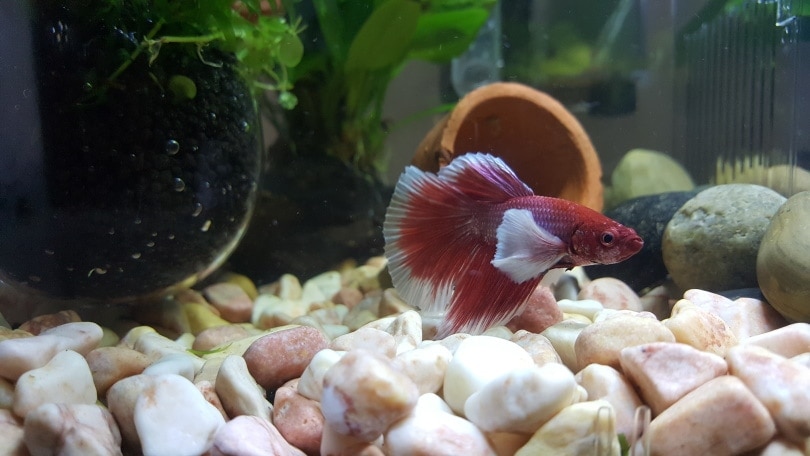
Top 5 Reasons That Cause a Betta Fish to Hide
There are a few reasons that betta fish will hide, most are typically minor issues that can easily be resolved by removing the source of stress.
1. Poor Water Quality
Water quality is usually the source of betta fish hiding. Water quality can quickly change and become toxic to your fish. This makes it important to always check the amount of ammonia, nitrite, and nitrate in the water using a liquid testing kit.
For bettas, your water parameters should be as follows:
- Ammonia: 0 parts-per-million (ppm)
- Nitrite: 0 ppm
- Nitrates: under 15 ppm, ideally under 10 ppm.
Dirt and bacteria can also enter the tank if you do not wash your hands before touching aquarium equipment. If the water quality is poor, your fish will try to hide and display patches of red, black, or missing scales due to ammonia or nitrite burns.
Chlorine in the water can cause severe damage to their slime coat and scales. All water should be treated with a dechlorinate before adding in fish. Live plants can also help keep the water quality under control.
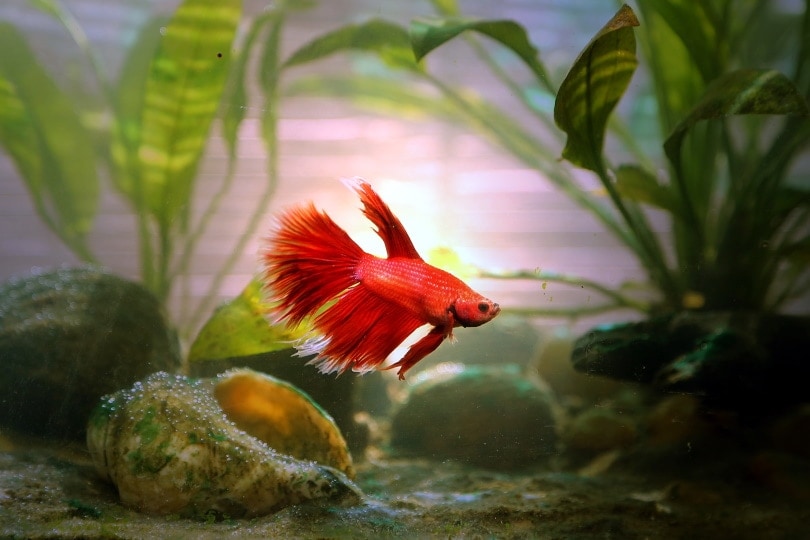
2. Loud Noises
Loud noises and vibrations can scare your betta and they will hide away as a result. If the disturbances are constant, they can become so stressed to the point that they will not leave the hiding place, even for food. Make sure your betta is not near a radio, television, or in a busy part of the household. Keep the tank in a quiet room with little to no disturbances.
The vibrations in the water are the main cause of stress and your betta has no way to stop the noise or vibration so they will attempt to hide from it. Kids may also tap on the glass or accidentally bump it. This will scare your betta fish and they may hide for a few hours. If it is a constant occurrence, your betta can become severely stressed.
3. Limited Hiding Spaces
Bettas feel secure in heavily planted tanks. This provides them with lots of hiding spaces and visual barriers that will make them feel safe. If your betta fish is kept in a tank that has large open spaces and no hiding spots from bushy live plants, then they will seek shelter behind the filter or any decoration in the tank. They do not like to swim in open spaces as this is an instinctive behavior that they have developed from the wild. A heavily planted tank can prevent this, and it will encourage your betta to be more active.
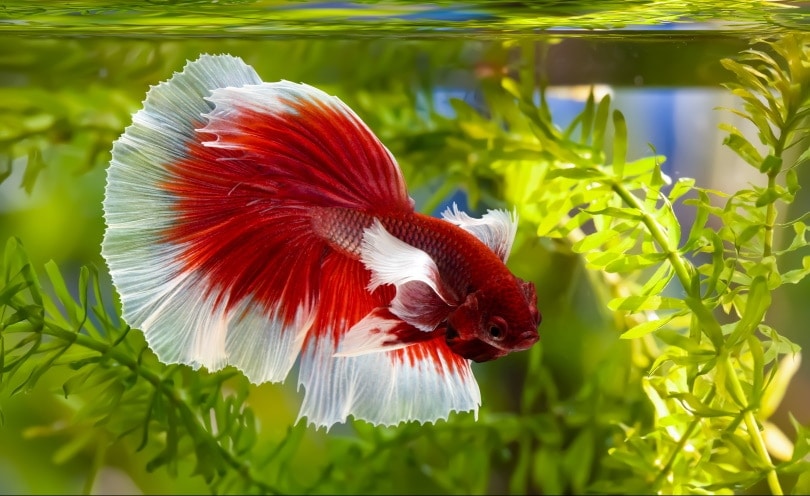
4. Aggressive Tank Mate
An aggressive or territorial tank mate can cause your betta fish to seek shelter. This is an attempt to avoid letting the tank mate see them and thus prevent fighting or chasing. Your betta will be in a high state of stress and may refuse to come out from their hiding spot until the tank mate has moved to a different part of the tank. Bullying is a common reason for bettas to hide in a community tank. Always ensure each fish is compatible with one another and that they do not harass the betta fish.
5. Sickness
A sick betta feels vulnerable out in the open when they are sick. They will hide and show symptoms of lethargy. You may also notice that the betta fish is showing signs of an illness like fin rot, pop-eye, infections, or tumors that can cause your betta to become weak and hiding is the only option.
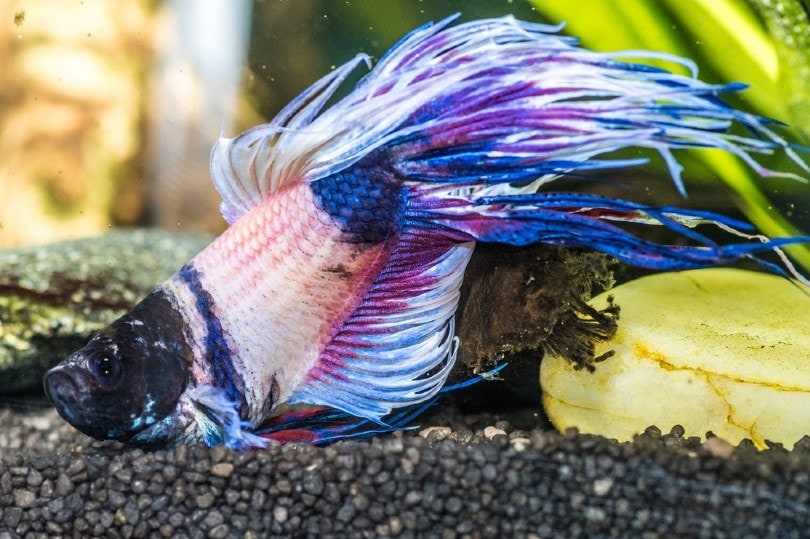
What Should You Do If Your Betta Fish is Hiding?
It is recommended to first determine why your betta fish may be hiding. You then want to find a treatment plan according to your betta’s symptoms if they are sick. If your betta fish is hiding due to an environmental disturbance, you should move them to a quiet place where the tank cannot get knocked. Never place a fish tank under a television or near a radio.
If the tank layout is the problem, then try and add silicone or live plants around the tank. There should be a centerpiece in the middle of the tank to create a visual barrier. Bettas love to swim amongst plants, and this will make them feel safe and they will be less likely to hide.
Make sure you keep your betta fish with compatible tank mates. This means avoiding large carnivorous fish and fin nippers. If you find that the community of fish is not getting along, then you should split them up in different tanks to prevent further issues.
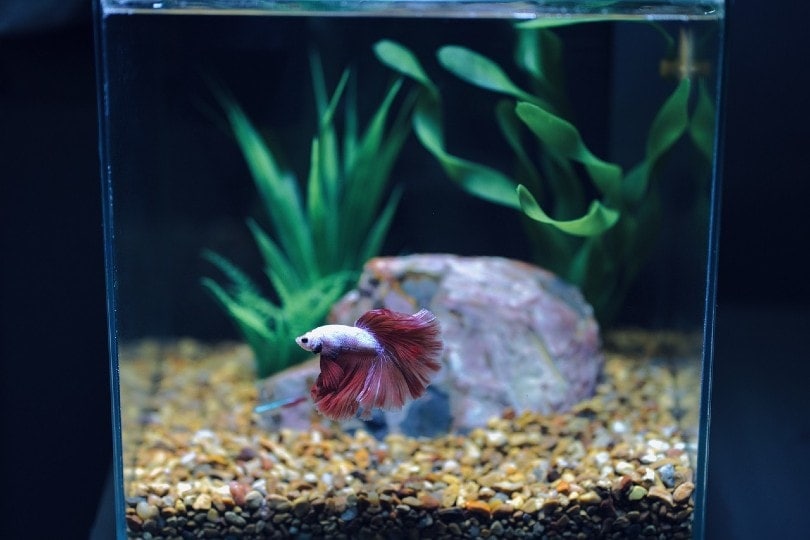
Conclusion
It is not unusual for new bettas to hide while they are adjusting to their new environment. It is more concerning if it is an abnormal behavior that is occurring in your typically active betta fish. This issue can be resolved easily by removing the source of disturbance that is causing your betta fish to feel stressed and hide.
See Also:
- Why Is My Betta Fish Not Moving? 5 Vet-Approved Reasons
- Betta Fish Swimming Erratically: 6 Vet-Approved Reasons
Featured Image Credit: Kosit Pajuthai, Shutterstock




